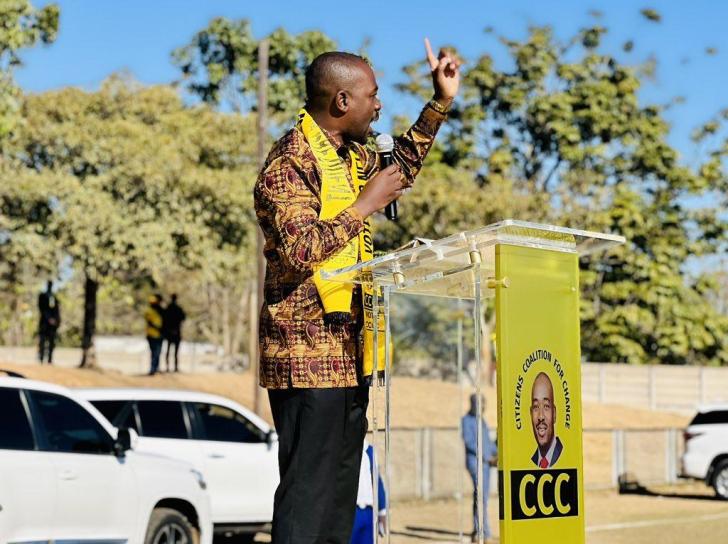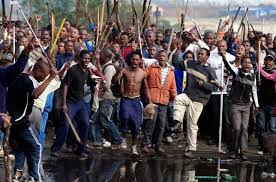Nelson Chamisa, leader of the Citizens Coalition for Change (CCC), has defended his long-standing use of the hashtag #Godisinit in his campaign for the presidency. Chamisa expressed his belief that God will visit Zimbabwe and display His power and strength.
In a post on X (formerly known as Twitter), the former ICT Minister urged fellow citizens to trust in the faith he holds dear. Chamisa stated that God has never let him down and will show Himself mightily in Zimbabwe. He said:
Fellow Citizens; Trust this #Godisinit I believe in. Let them not mock you. He has never let me down before. He will surely visit Zimbabwe He will show Himself mighty and strong. You will love it. He is always on time. Ignore these manly and sham sideshows. Don’t say I didn’t tell you! Be happy Zimbabwe! Isaiah 33:22 #OnePeople
Nelson Chamisa’s remarks came in response to criticism, including from Zimbabwean preacher Apostle Talent Chiwenga, who accused him of using God’s name in vain and failing to balance faith and action.
Chiwenga argued that if God truly supported Chamisa, he would not have lost the 2018 and 2023 presidential elections to President Emmerson Mnangagwa. Chamisa alleges that the Zimbabwe Electoral Commission (ZEC) colluded with the ruling ZANU PF party to manipulate the election results in favour of Mnangagwa.
Chiwenga, a strong critic of the ZANU PF government, particularly his relative Vice President Constantino Chiwenga, made predictions before the 2018 elections suggesting that the political landscape would remain unchanged. He stated that there would be an unpopular leader before a youthful one took office following the departure of Robert Mugabe, Zimbabwe’s founding leader.
Many people interpreted the “prophecies” to mean that Chamisa would become president after Mnangagwa’s first term. However, Chiwenga argues that Chamisa’s claims of winning the 2018 and 2023 elections go against God’s prophecy, which stated that there would be no change in Zimbabwe’s governance system, at least for the time being. Religion plays a significant role in Zimbabwean politics with various interpretations and beliefs influencing public discourse and perceptions of political leaders.
Chamisa, who declined to accept the 2023 presidential election results, has reached out to the Southern African Development Community (SADC) to request their intervention in advocating for new elections in Zimbabwe. He proposes that the elections be overseen by impartial organizations such as SADC, the African Union (AU), and the United Nations (UN), rather than the perceived biased Zimbabwe Electoral Commission (ZEC). However, some believe that it may be too late for such action, considering that Members of Parliament, including CCC MPs, were recently sworn in. Mnangagwa, the incumbent president, had already taken his oath of office on September 4, 2023.
Source Pindula News












